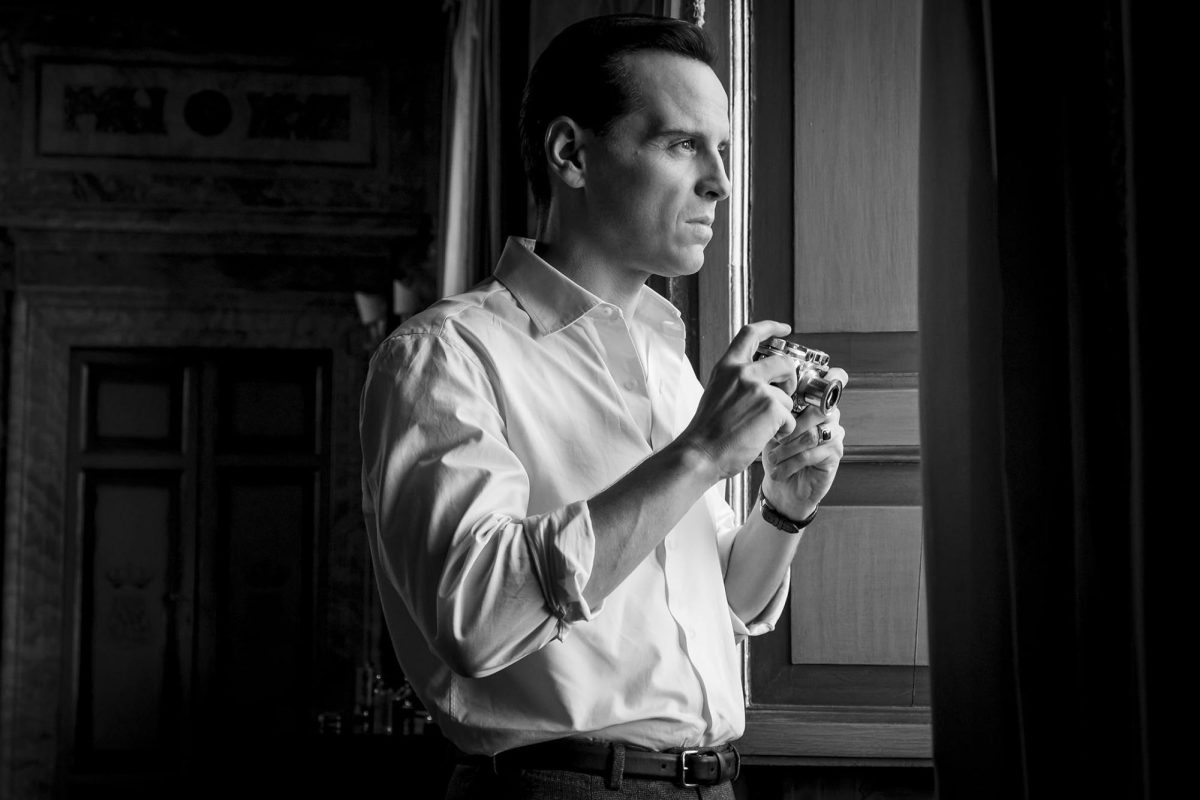Writer-director Miranda July’s latest work is an unconventional heist film that encapsulates everyone’s biggest fear: disappointing your family.
“Kajillionaire” focuses on a young woman named Old Dolio Dyne, played by Evan Rachel Wood, and her parents, Theresa (Debra Winger) and Robert (Richard Jenkins). The Dyne family makes money by committing petty crimes such as stealing from mailboxes and redeeming the coupons they find inside. As much a criminal syndicate than a family, the Dynes’ interpersonal relationships are strangely professional. They split their earnings equally between the three of them and never show each other any love or affection. It is never explained why they live or act like this, but it is evident that they have always acted this way.
Each member of the family wears a unique uniform that highlights their distinct personalities.
Old Dolio wears an extra-large dark green tracksuit everywhere she goes. Her hair is so long that it appears to swallow her frame. Theresa is always bundled up, layering sweaters on shirts on top of turtlenecks. Her husband appears to be in a perpetual state of partial undress, wearing untucked shirts and pants that betray his waist’s true girth. Although Theresa and Robert appear more normal than Old Dolio, their idiosyncratic topics of discussion, such as predicting future earthquakes that may kill them, clearly say otherwise.
The family is strange enough to be considered weird, but not quirky enough to be considered endearing. Their personalities make it seem as if they’re competing with one another, prioritizing their ambitions over the desire for familial connection.
When the family’s landlord tells them that they are behind on rent and gives them two weeks to pay it, Old Dolio invents a scam that will quickly get them the money. While executing the heist, her parents divulge their secrets to a stranger named Melanie, played by Gina Rodriguez. When the heist does not go as planned, Old Dolio gets angry at her parents for trusting and welcoming Melanie so easily. Much to everyone’s chagrin, Old Dolio lashes out against them in a public setting.
Melanie represents the opposite of the Dyne family. She lives in a nice apartment full of furniture, technology and comfort. Her overly loving mother calls her multiple times a day. Even though she appears normal, she uses the Dyne family to inject some danger into her mundane life.
July wrote these characters and their flaws as if to exclaim, “Everybody’s a mess! But it’s okay.” Melanie’s doing fine but lacks excitement and Old Dolio’s parents pretend to be grand scammers when they haven’t pulled off a single heist. Old Dolio lives an exciting life that does not seem to amuse her, and finds herself disenchanted by her parents’ act.
This series of disillusionments is perfectly captured in composer Emile Mosseri’s score. The composer behind “The Last Black Man in San Francisco” and “Minari” immerses the viewer in the intense feelings of pleasure and pain each character faces, especially Old Dolio who always seems at odds with the world around her.
Wood is amazing as Old Dolio — a character that has almost no redeemable qualities — who somehow comes off as entirely relatable. She’s physically stiff but can also demonstrate incredible elastic agility, exemplified in the scene when she flips around to avoid security cameras and bends over backwards to leave her house without catching the attention of her landlord. She is a walking paradox.
Wood conveys the emotions of Old Dolio entirely through body language as her posture shifts between stoicism and discomfort. With a quick flick of her head, she can change from a state of calm to one of confusion. Always at odds with the world around her and quick to pivot from one axis of the emotional pendulum to another, she displays fractured modality. It’s not difficult to imagine why she’s so volatile and disheartened. After all, her whole life has revolved around pleasing her parents by planning grand schemes only to receive no recognition whatsoever upon executing them.
Although Old Dolio initially despises Melanie, she slowly becomes enamored with her as a result of Melanie’s enthrallment with the Dyne family, and more specifically, with Old Dolio herself. No one has ever rewarded her with attention before. When someone finally does, this revolutionizes her and is shown through a dance.
In one of the film’s most memorable sequences, Melanie and Old Dolio find shelter from an earthquake at a gas station. Melanie stomps about in a furious frenzy from which Old Dolio emerges changed. After years of agony, Old Dolio finally feels love. She decides to run away with Melanie: the only person who has shown her warmth.
Although tragic at times, “Kajillionaire” is humorous, incredibly moving, poetic and thought-provoking. It redefines interpersonal dynamics by interrogating the ways in which families demonstrate love towards each other. July uses the Dyne family to bridge the gap between needing someone and loving someone, resulting in the portrayal of unconventional relationships that are rarely shown in film.
Contact Saige Gipson at [email protected].














































































































































